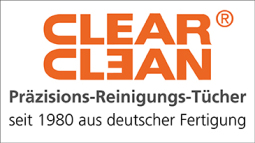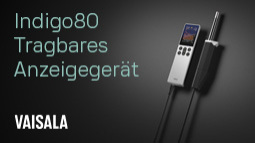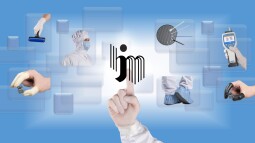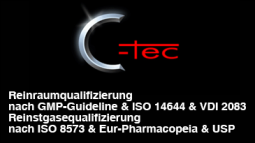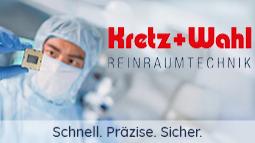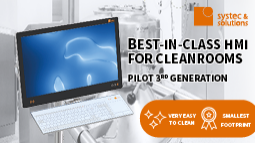The MEDICA LABMED FORUM highlights laboratory medicine’s top topics
From smart diagnostics and high-performance medicine to Artificial Intelligence
What functions will the laboratories of the future perform? And how can they make even more accurate diagnoses, ideally more quickly and at the place of treatment? From 18 to 21 November 2019, visitors in Düsseldorf will find the answers to these questions at MEDICA, the world’s largest and leading medical trade fair with more than 5,000 exhibitors. The field of laboratory technology and diagnostics has moved into Hall 1, which has just been completed. Here, more than 800 exhibitors, among them renowned returnees like Abbott and Euroimmun, focus on all the trending topics in modern laboratory medicine.
In addition, the cutting-edge MEDICA LABMED FORUM sessions highlight progress in the fields of microbiology, cardiology and oncology from a laboratory medical point of view. They also take a closer look at a hot industry topic: promoting young talent and career prospects for young scientists. The forum also found a new home within the 12,000 square metres that make up Hall 1 and is organised by Prof. Dr. Georg Hoffmann (Trillium GmbH, specialists for medical publications) in cooperation with the German Heart Centre in Munich.
On 18 November, the programme will be chaired by PD Dr. med. Beniam Ghebremedhin (Witten/Herdecke University, HELIOS University Hospital Wuppertal) and launches with a closer look at microbiome analysis, currently a much hyped topic. Here, the forum addresses the sequencing of genomic information of all micro organisms in our bodies, which play a decisive role in determining the course of diseases. In his introductory talk, Prof. André Gessner (Institute for Microbiology and Hygiene, University Hospital Regensburg) will cover a range of areas, from great analytical challenges to surprising findings regarding what is known as the gut-brain connection. Dres. Laura Steenbergen (Leiden University, Netherlands) and Jean-Pierre Trezzi (University of Luxembourg) will hold an illustrative talk on the meaning of microbiomes in the development of depression and Parkinson’s disease.
The first afternoon in Düsseldorf will be no less captivating. Here, the forum will illuminate an entirely new field of analytics, in which innovative start-ups are already active—breath analysis. Our breath provides valuable diagnostic information more quickly and easily than our blood—not only on infections and tumours in our lungs, but on diseases of the digestive tract and numerous inflammations. Dres. Simona Cristescu, Agnieszka Smolinska and Wolfgang Vautz will outline the areas of application for these issues. Prof. Wieland Voigt from Steinbeis University in Berlin will provide an extensive technological overview.
Parallels to sports medicine
The second and third days at the MEDICA LABMED FORUM (19 and 20 November) will be chaired by Prof. Stefan Holdenrieder (German Heart Centre in Munich) and are dedicated to cardiovascular diseases and cancer. Here, the forum highlights new scientific and technological developments, molecular high-tech analysis procedures and modern Artificial Intelligence (AI) applications for laboratories as well as the use of small and intelligent diagnostic devices for athletes and patients.
In the cardiovascular module, PD Dr. Markus Krane from the German Heart Centre in Munich and Prof. Bernd Giebel from the University of Duisburg-Essen will present innovative procedures to regenerate heart tissue made of stem cells and exosomes. PD Dr. Oktay Tutarel, also from the German Heart Centre in Munich, and Prof. Frank Klawonn from TU Braunschweig will update visitors on cardiological biomarkers in children and the urgently required standardisation of biomarker data.
“Due to the great interest visitors showed last year, we are dedicating an entire afternoon to the module on cardiology in sports medicine this year,” explains Prof. Dr. Georg Hoffmann, who organises the forum. In this module, Prof. Perikles Simon from the University of Mainz will talk about circulating nucleic acids as biomarkers for athletic activities and performance, whilst Prof. Billy Sperlich from the University Würzburg will take the auditorium through sports medical diagnostics in athletic sport to their use in grassroots sports.
The cardiology topics are particularly relevant to sports medicine and are expected to be highly popular with the specialist audience again this year. Therefore, another long-established element of MEDICA’s programme, the 7th MEDICA MEDICINE + SPORTS CONFERENCE, will once again unite the who’s who of the international professional sports medicine scene in the Congress Center Düsseldorf (CCD Süd) on 20 and 21 November 2019.
Gaining accurate cancer diagnoses from blood
When diagnosing cancer, histopathological and molecular pathological examinations of the tissue are still the gold standard, according to Prof. Christopher Poremba, Munich. Increasingly, this method is supported by digital image analysis procedures. Dr. Volker Bruns from the Fraunhofer Institute for Integrated Circuits IIS in Erlangen illustrates the “practical use of Artificial Intelligence in digital pathology” on the third day of the forum (20 November). Prof. Frank Klawonn and Dr. Dr. Huub van Rossum (Antoni van Leeuwenhoek Hospital, Amsterdam, Netherlands Cancer Institute) demonstrate the complexity of this topic, which is already being applied in blood diagnostics.
Mutation detection in our blood offers a significant expansion of future diagnostic possibilities, and methods such as liquid biopsies and liquid profiling are currently much talked about. These allow a molecular characterisation of tumours even in cases in which no tissue biopsy can be performed, which enables closely-meshed progress monitoring in personalised cancer therapy for the first time. Prof. Nicola Normanno from the University of Naples Federico II will summarise the current status and future perspectives at the MEDICA LABMED FORUM in the afternoon of 20 November.
Focusing on the future, in pursuit of young talent
In the field of biosciences, searching for new talent is increasingly proving almost as challenging as identifying diseases. The final day of MEDICA 2019 (21 November) focuses on this topic. In this module, young doctors and scientists will once again be given insight into captivating fields and current trends in the laboratory sector, whilst the afternoon sheds light on opportunities for professional development—in academic as well as industrial environments. Here, the focus is on professional aspects as well as general issues such as reconciling careers and work . The content of this theme day at the MEDICA LABMED FORUM was designed in cooperation with the German Society for Clinical Chemistry and Laboratory Medicine (Deutsche Gesellschaft für Klinische Chemie und Laboratoriumsmedizin, DGKL) as well as the Diagnostics Industry Association (Verband der Diagnostica-Industrie, VDGH).
The MEDICAL LABMED FORUM programme offer runs daily from 10:30 a.m. to 4 p.m. Participation is free for visitors with a ticket to MEDICA.
Messe Düsseldorf GmbH
40001 Düsseldorf
Germany


